05 Sakegawa Village
Session Information
- Date and
Time - Saturday, November 12th, 2022 (14:00~16:00)
- Venue
-
Sakegawa Eco-Park
See on Google Maps
- Content
- Viewing
-
This event has ended.
You can watch an archived video of this event.
- Other
- Attendance is free
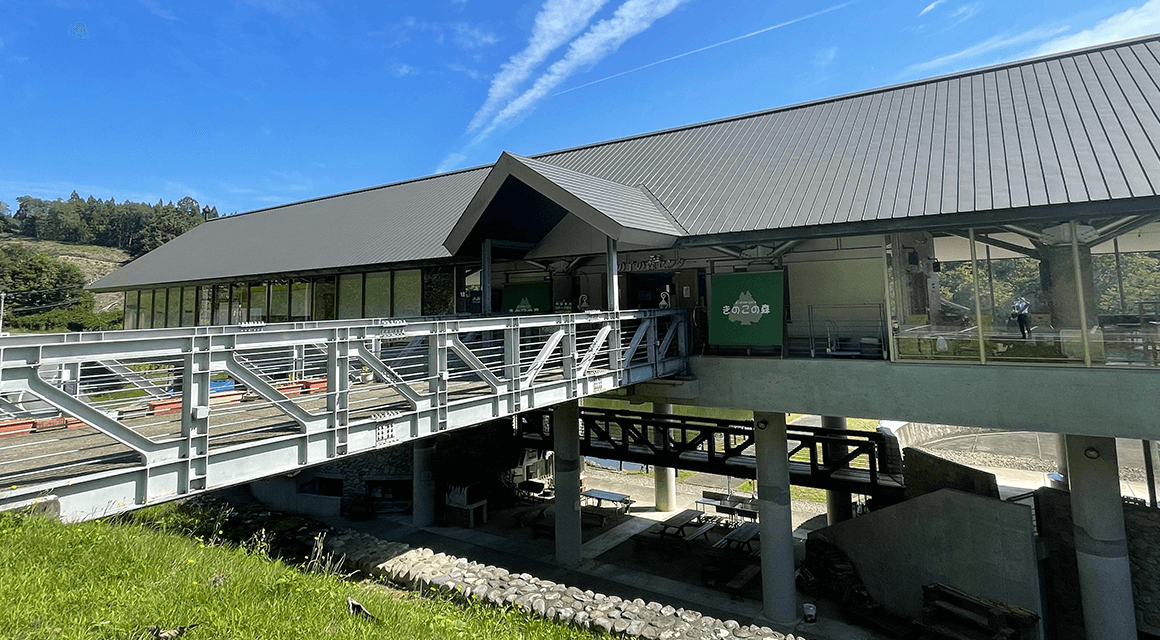
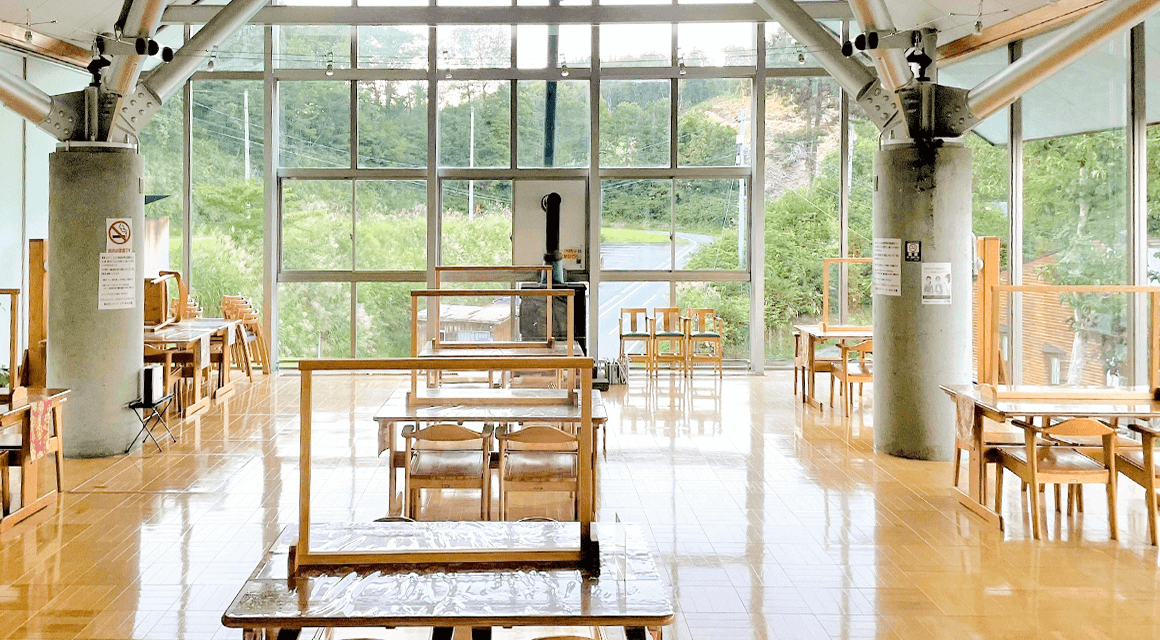
Event Report
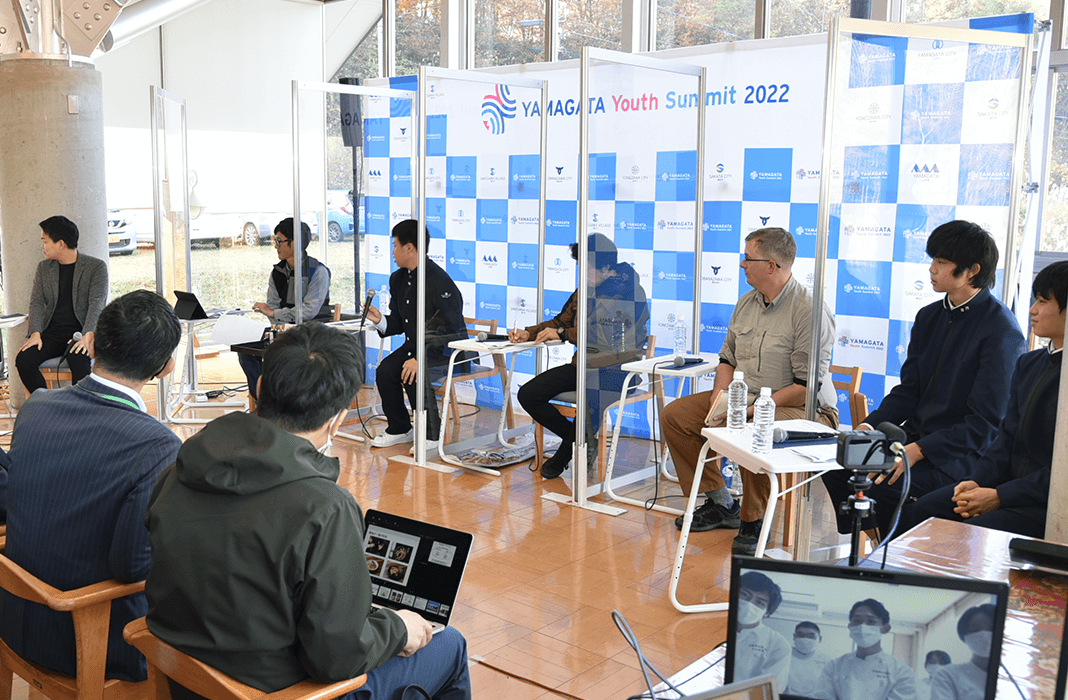
The Regional Discussion regarding promotion measures for Sakegawa Village that utilize salmon and nature as reasources.
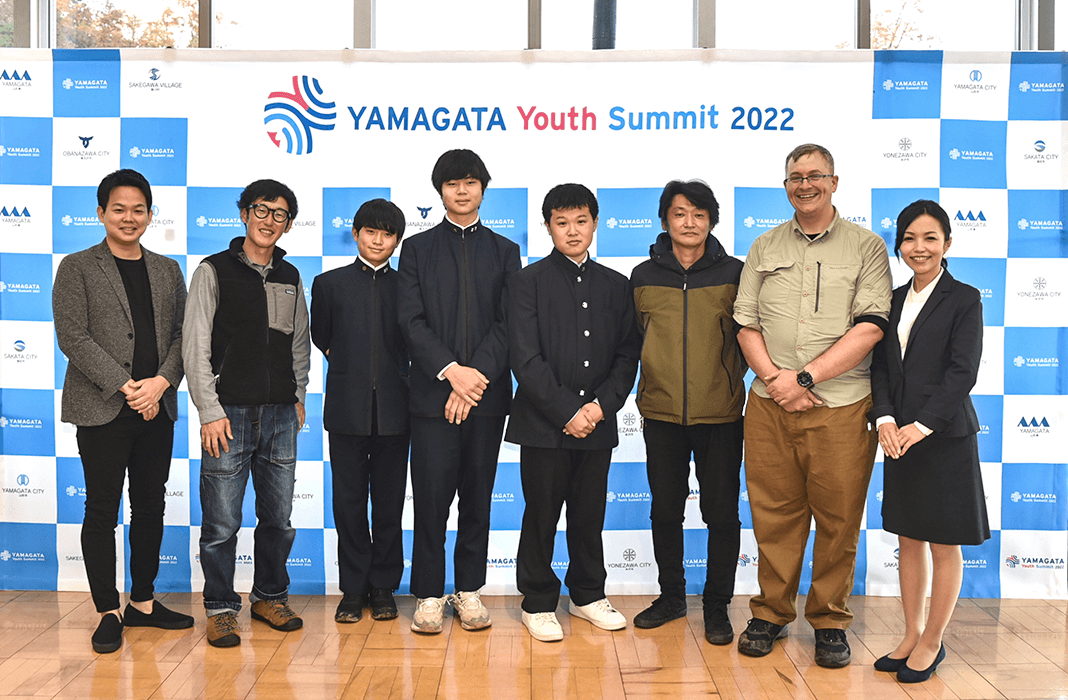
Participants discussing promotion measures for a sustainable Sakegawa Village.
The Chinese characters used to write Sakegawa Village’s name translates to “salmon river,” and according to Sakegawa Village advisor Mitsuo Matsunami, no other administrative body in Japan uses the character “salmon” in their name. Sakegawa Village has a unique culture regarding making "Yo-no-Jingiri, a food specific to this region. In order to make Yo-no-Jingiri, locals catch the salmon that are migrating upstream to lay their eggs, and upon catching and removing the eggs, the salmon are sprinkled with salt to remove moisture and then exposed to cold wind to mature.
In addition to its rich culinary traditions, Sakegawa Village is also abundant in nature and is characterized by rural landscapes that can have earned the charming riverside town the tagline of "the scenery of one’s hometown."
During this panel event, the panelists exchanged information on various initiatives that utilize Sakegawa’s salmon and nature as local resources and discussed measures to pass on these traditions to the next generation. In recent years, the usage of Chum salmon, which run upstream in rivers in Japan, as a resource has been declining on a national scale. However, now, the people of Sakegawa Village have been catching more salmon than ever. Unfortunately though, the people involved in the hatchery and aquaculture business of juvenile salmon are aging, and the value of "one salmon for one bale of rice (60 kg)" is not being driven to its full potential, which has made it difficult to make a living from salmon alone.
During the discussion, there were various examples of how to best utilize salmon as a resource, such as the efforts of Niigata Prefectural Kaiyo High School, which makes and sells fish sauce made from salmon. In addition, the merit of catching salmon for fishing and research purposes was brought up, as was the topic of other regional development measures that make use of Sakegawa’s salmon and nature. Some other key points and ideas that came up from panelists were:
“Activities to keep salmon culture alive and provide information are absolutely necessary!”
“I think many people will become more interested if they get to experience eating our delicious salmon!”
“It would be nice if we could put on events to raise awareness about our food culture and nature in other countries.”
“What if the money we raised through fishing went back into making educational programs to preserve these traditions and protect the salmon?”
Overall, it was a very productive event, and a slew of great ideas and new possibilities emerged from the passionate panelists.
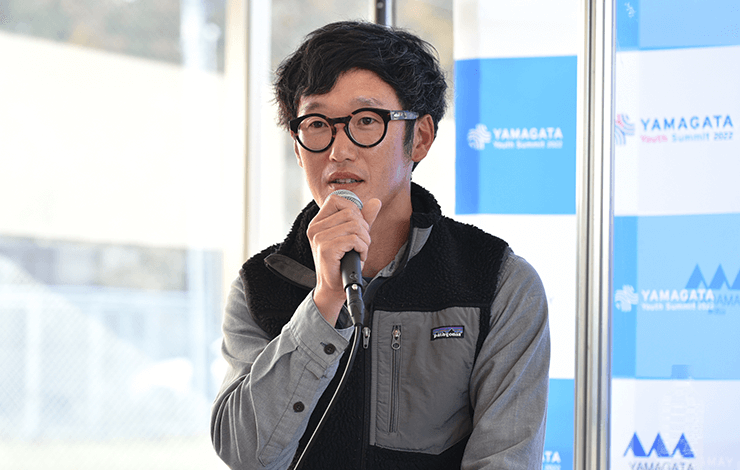
Mitsuo Matsunami, an advisor who has experience working as a regional revitalization cooperation team in Sakegawa Village.
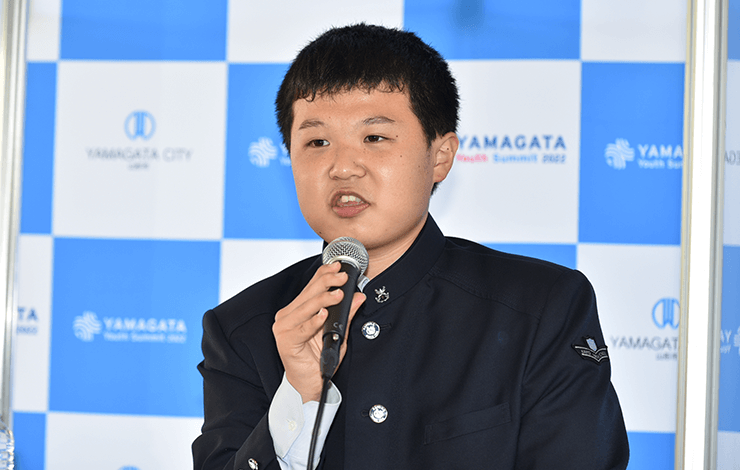
Koki Ito, a third-year student at Niigata Prefectural Kaiyo High School, presenting fish sauce made from salmon.
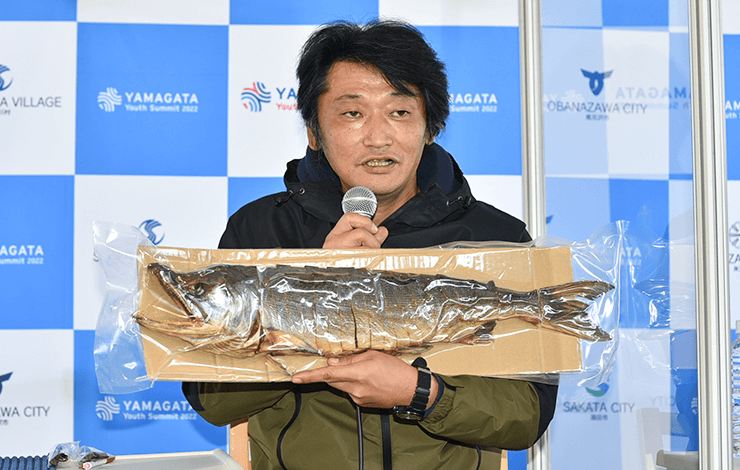
Panelist Harumi Yaguchi introduces freshly sliced salmon.
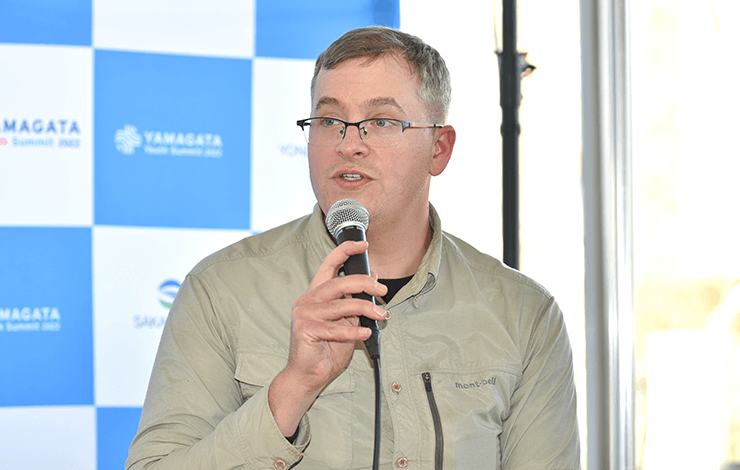
Panelist Fred Lauer emphasized the richness of nature in Sakegawa Village.
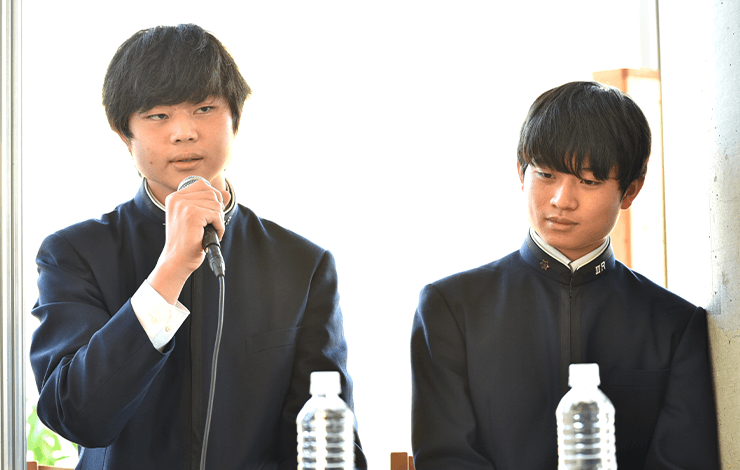
High school students Yuma Nishi (left) and Kiyoteru Abe (right) from Kamo Fisheries High School served as panelists.
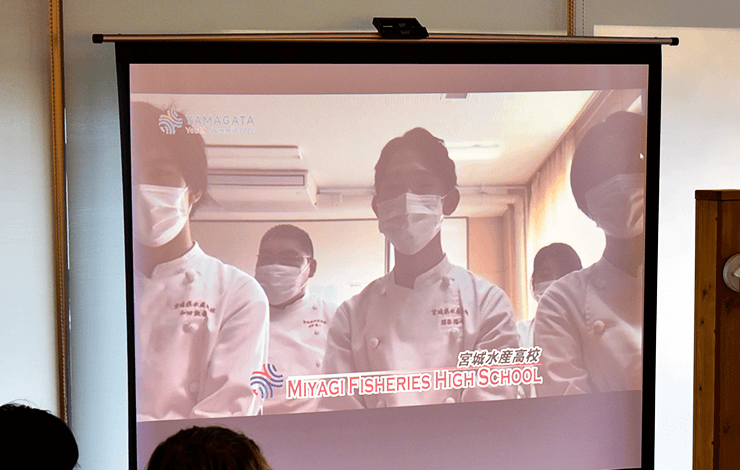
Students from Miyagi Fisheries High School participated online.
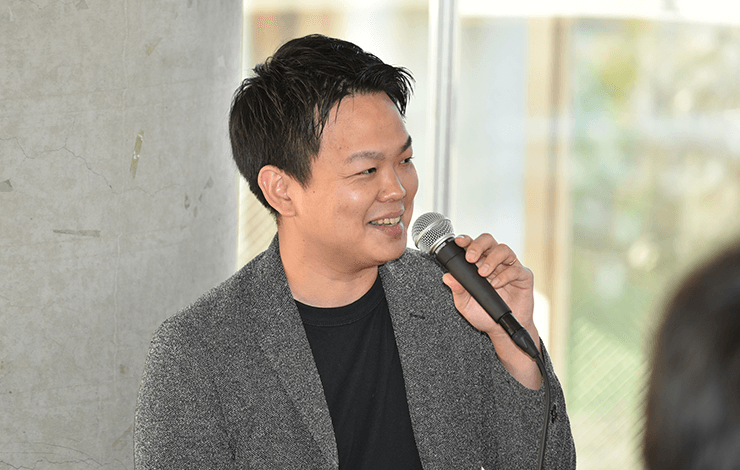
Ken Miura yet again served as facilitator.
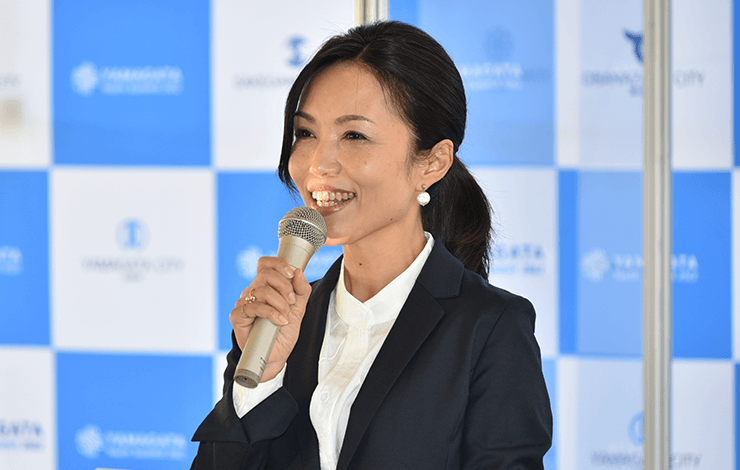
Moderator Naoko Inoue.
YouTube Live
*Please use Youtube's translation function when viewing.
If you participated in person or online,We appreciate your cooperation in filling out the survey.
Regional Forum
Panelists
-
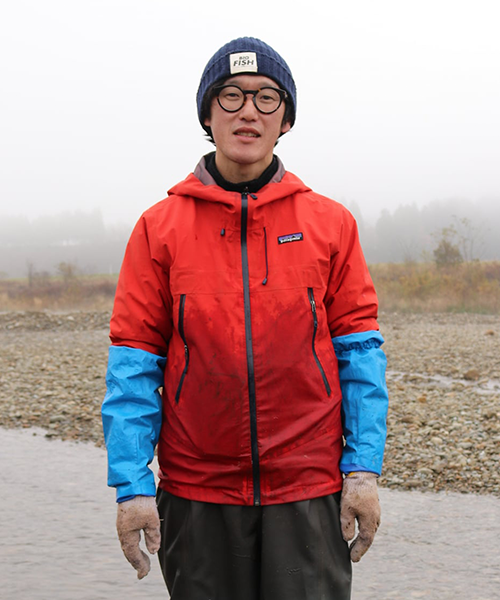 AdvisorSakata Port East Pier Exchange Facility "SAKATANTO" Manager
AdvisorSakata Port East Pier Exchange Facility "SAKATANTO" ManagerMitsuo Matsunami
Born in Oiso Town, Kanagawa Prefecture, looking to tackle the problem of marine litter in our oceans, Mitsuo Matsunami majored in fisheries science at university. After working in the outdoor clothing industry for roughly ten years, Matsunami moved to Sakegawa Village with his family in April 2019. After three years of working in regional revitalization on the theme of "Utilization of Salmon from the Sakegawa River," he reached his current position as the manager of SAKANTO, a facility for seafood and exchange, in the Port of Sakata. He plans to use a portion of the profits from the Shonai beach fishing tourism project "Tsurication" to help support the fishing activities of Sakegawa and to pass along this salmon fishing culture on to the next generation.
-
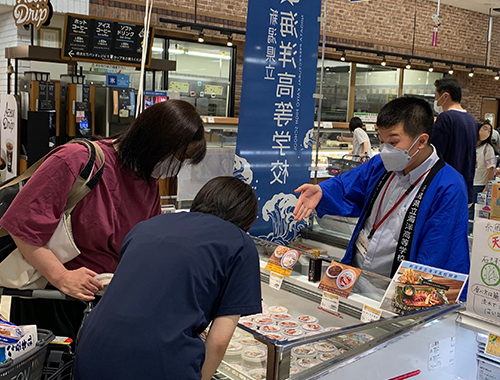 PresenterNiigata Prefectural Kaiyo High School 3rd
PresenterNiigata Prefectural Kaiyo High School 3rdKoki Ito
Originally hailing from Sado Island, Koki Ito is a third-year student at Niigata Prefectural Kaiyo High School and is currently enrolled in their Aquaculture Department of Food Science Course. While his passion for seafood is what initially drove him to apply for the course, his talent for customer service sales really blossomed during his sales training during his second year. Outside his studies, he also works part-time at the "Niigata Prefectural Kaiyo High School Antenna Shop Nousui Shoten," which opened at the local roadside station this past April. During his school's product development class, students had the opportunity to work on developing Niigata's original trout sushi that is innovatively soured with the Uonuma strain of lactic acid bacteria found in pickles preserved in storage snow caverns in the Uonuma area. This experience has heightened his interest in the retail industry, and he has since been offered a job in a supermarket back on Sado Island.
-
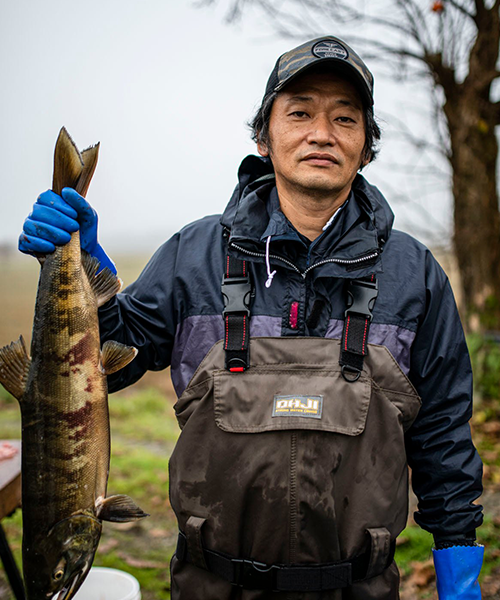 PanelistsRepresentative of "Salmon Road Association" ⁄ member of the Salmon and Trout Club of the Mogami Fisheries Cooperative
PanelistsRepresentative of "Salmon Road Association" ⁄ member of the Salmon and Trout Club of the Mogami Fisheries CooperativeHarumi Yaguchi
Following in his father's footsteps, who also worked tirelessly to promote salmon production in Sakegawa Village, Harumi Yaguchi became a member of the Mogami Fisheries Cooperative Salmon and Trout Subcommittee in 2020 and is the current representative of the "Salmon Road Association." While he may be the youngest member of the volunteer group, "Salmon Road" is responsible for the production of Sakegawa village's traditional preserved food, "Yo-no-Jingiri," as well as educational activities related to salmon for children that will ensure that Sakegawa's intrinsic salmon culture gets passed down to the next generation.
-
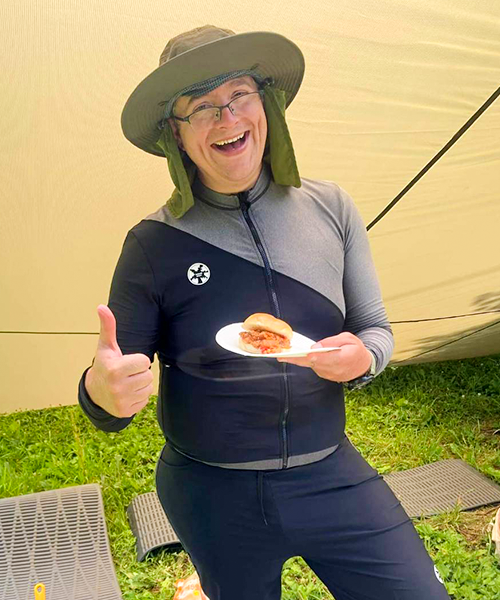 PanelistsRepresentative of "Kamui Kids", a forest daycare center
PanelistsRepresentative of "Kamui Kids", a forest daycare centerFrederick Isaac Lauer
Fred is from Wisconsin, USA. He graduated from the University of Wisconsin with a bachelor's degree in Japanese and East Asian Studies. He received his Master's in Systems Ecology from the University of Montana. He taught English in high school in Chiba for 5 years, and has spent the last four years teaching English to early learners. Currently, in an effort to improve the lives of Japanese children, he spends most of his time studying early childhood education, childhood psychology and development, and outdoor education. Learn more about his forest kindergarten, Kamui Kids, at https://www.kamuikids.org/
-
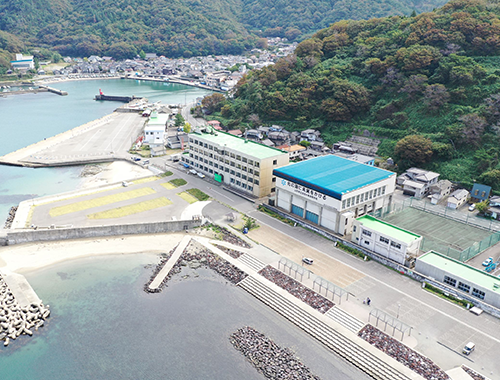 Panelists
PanelistsKamo Fisheries High School
-
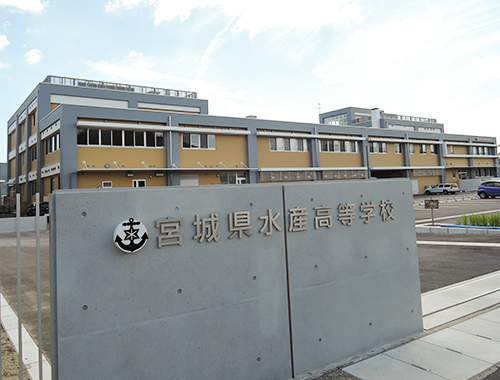 Panelists
PanelistsMiyagi Fisheries High School (Online)
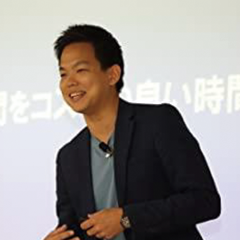
Born in Yamagata in 1993, after graduating from Nihon University Yamagata Senior High School, Ken Miura studied abroad at the University of Washington in the United States. After consulting for sole proprietors, he ended up working in brand strategy consultation development for corporations. Currently, he mainly works on helping small and medium-sized enterprises formulate their missions and visions in order to discover and verbalize their unique values. His services cover a wide variety of fields including websites, advertisements, new business development, and recruitment,all of which lead back to him providing a total brand strategy that instills a strong internal company philosophy reflecting their values as companies.
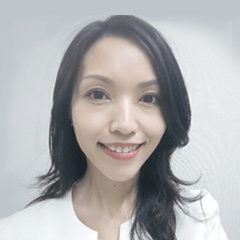
Born December 28, 1974, in Yonezawa City, Yamagata Prefecture, and raised in Kawanishi, Naoko Inoue is currently a proud resident of Nagai City. During her time as a student at Kunori Gakuen Girl's High School in Yonezawa, she transferred to Glendora High School in California, USA in 1991 before going on to study at California's very own Citrus College. In 1998, she returned to Japan after experiencing working at a travel agency in LA and trying her hand at the media talent industry.
Over the years, Inoue has worn many hats. Radio DJ, commercial narrator, lounge DJ, bilingual English and Japanese moderator, a TV reporter for YBC Yamagata Broadcasting, TUY, and SAY Sakurambo TV, a magazine model (Bi Story), an interpreter, and to top it all off, she is currently active as an English teacher at a nursery school as well as performing as one of the Yamagata Maiko. There are very few things that she hasn't done! In addition, she is one of the instructors of the Yamagata Prefectural Board of Education's "Learn from Professionals" program.
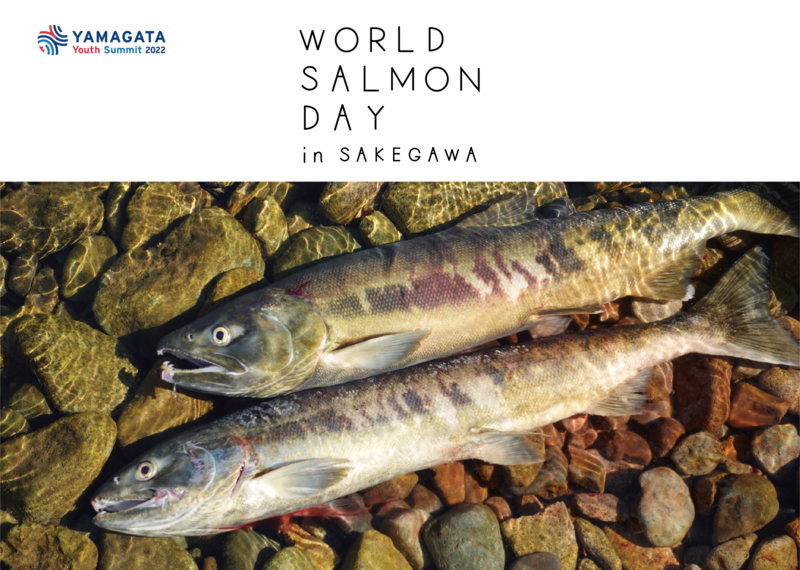
*This event has ended.
